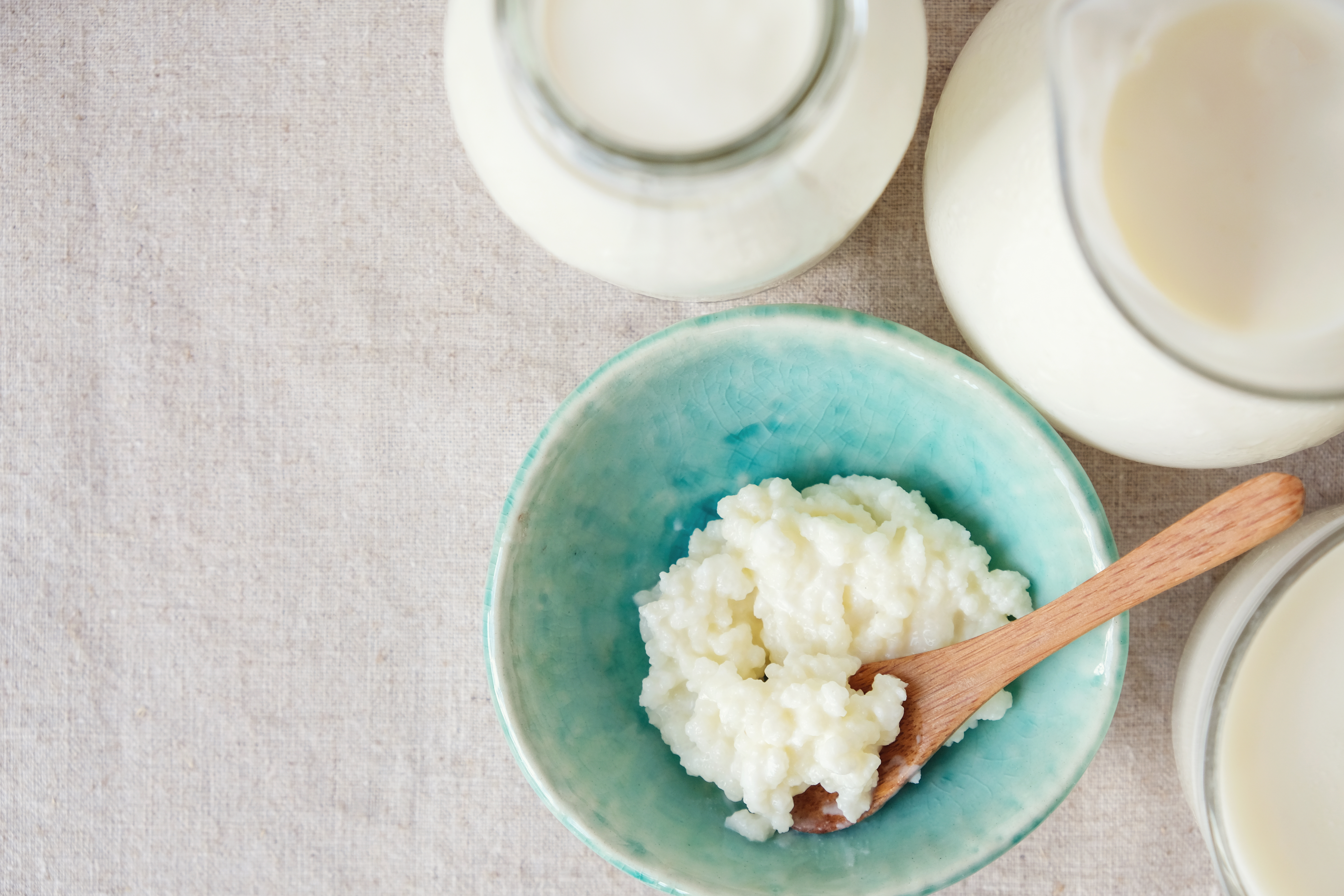Whether you’re trying to fend off the flu, heal your digestion, or just improve your overall health, consider giving kefir a try. This fermented food is actually an ancient “health food”, and it can be an excellent addition to your current diet.
So, what is kefir exactly? Kefir is a fermented dairy product, similar to yogurt, that originated in Asia and Europe. Kefir, unlike yogurt, is something you drink.
It is made by using milk – usually cow’s milk, but other milks, such as goat, sheep and coconut milk are common options, too.
Then, kefir grains are added to the milk and it’s left to sit for at least 24 hours. But these grains aren’t really grains. Instead, they’re little jelly-like beads that have different bacterias and yeasts in them – 30 strains of good bacteria, to be precise. When they’re placed in the milk, they ferment the lactose (sugar) in milk, and this allows healthy bacterias to flourish.
Once strained, you end up with is a probiotic-rich drink that has been used for centuries to treat many conditions, including a weakened immunity and compromised digestion.
Kefir for immunity
Kefir contains an important probiotic called Lactobacillus Kefiri which protects your body from salmonella, e.coli, and h-pylori. It’s also rich in biotin and folate – two nutrients that boost your immunity.
Kefir for digestion
Illness and medications can sometimes alter the delicate balance of the gut microbiome. Kefir can help to replenish friendly bacteria and restore lost flora. Conditions including IBS, Crohn’s, ulcers, and other digestive upsets (such as bloating or diarrhea) can be supported by this probiotic health food.




